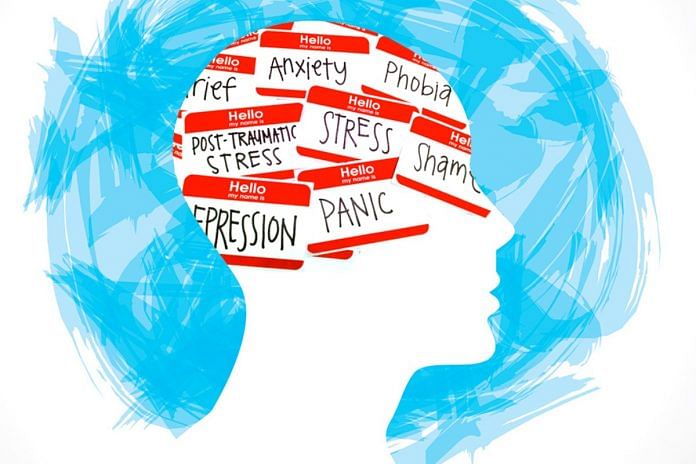Thank you dear subscribers, we are overwhelmed with your response.
Your Turn is a unique section from ThePrint featuring points of view from its subscribers. If you are a subscriber, have a point of view, please send it to us. If not, do subscribe here: https://theprint.in/subscribe/
Health is defined as a state of complete Physical, Mental and Social wellbeing, and not merely the absence of disease or infirmity. The term ”Spiritual health” has also added to the above descriptors by some experts.
Mental health has been conceptualised as a state of Mental Well-being, that enables people to cope with the stresses of life, realise their abilities, learn well and work well.( and not merely the absence of mental disease)
Current General awareness of Mental Health in India
Our print media, of late, has been highlighting poor general public mental health, quoting suicides by prominent film personalities, stressed school children or frustrated scientists as examples.
Significant mental health issues relate to well known psychiatric conditions such as Schizophrenia, Paranoia, mood disorders, Anxiety but it is not the scope of this article to go into further detail.
Most of these could result in permanent license denials, without satisfactory treatments and appropriate certifications.
Suffice it to say that when the process of living a normal life exceeds the capability of the Pilot to handle it safely—then, mental health issues could arise. This is where sensitive handling by trained airline HR staff, Medical departments will yield dividends. These conditions will at the most, cause temporary unfitness only.
What brought about the focus on Mental health in Airline Pilots ?
The suicidal crash of an A 320 German Wings (GW) flight 9525, on 24 March 2015, brought mental health amongst commercial pilots into very sharp focus.
Not only was the pilot-in-charge (PIC) undergoing psychiatric care, there was no avenue for communication between the trained mental health professional and the aviation regulator.
For reasons best known to him, the treating Psychiatrist did not advise the airline or the EASA regulator..
A few years earlier, an Egypt Air crash was also talked about, as being a suicide by the PIC and a lesser known accident with a similar aura, was the LAM accident in Namibia.
Regulatory Responses
The FAA response to the GW accident was predictably rapid. The Federal Air Surgeon —-(the equivalent post in India would be the Director General of Medical Services (Air)—mapped out a plan ( with a Civil Aviation Safety Team) starting with the creation of a working group, to study the issue of mental health in airline pilots, and make recommendations. The group, needlessly to say, had a medical member in it.
In its response, the ICAO, set up a Mental Health working group in 2015 to similar ends.
Doubtless, European regulators and those of other major aviation countries like Australia, Canada and New Zealand, also have their own reviews done
The reporting objectives were to be based on risk assessment a holistic view, and to offer reasonable and practical counter measures.. The stress on the need to avoid over reaction without proper justification and evidence was made.
Now, in a draft Civil Aviation Regulation (CAR) the DGCA freshly addresses the issue of Substance abuse, amongst trainee and airline pilots and Air Traffic Controllers (ATCOs).
But the new CAR does not acknowledge the underlying mental health issues that lead to this end-point of substance abuse; or indeed how to deal with airline pilots seeking or undergoing psychiatric treatment, on the quiet.
Nevertheless, and however much delayed, it is a start that has been made—that of acknowledging mental health amongst Airline pilots and ATCOs need study and definition.
India needs very specific studies, best served via a longitudinal study protocol, need to be undertaken.
Impact on selection, training and monitoring of airline pilots, by strengthening the airline medical departments will result, as indeed, specific training of aviation medicine examiners on early detection and prevention of mental health issues.
The final reports would need strict adherence to the mandates of Aviation medicine and Aviation safety.
But again, this article does not purport to go into methodologies of conducting such studies. That will be done by the multi-disciplinary working group that will need setting up.
We need Study-in-India for Make-in-India Solutions for Flight Safety.
These pieces are being published as they have been received – they have not been edited/fact-checked by ThePrint.

